Richvale Corp. has recently highlighted the importance of adhering to bookkeeping best practices as businesses prepare for compliance regulations set to take effect in early 2025. The company emphasizes that proper bookkeeping is not just a legal requirement but also a strategic advantage for businesses aiming to thrive in a competitive market.
Key Takeaways
- Importance of accurate bookkeeping for compliance.
- Strategies for effective bookkeeping practices.
- Benefits of maintaining organized financial records.
The Importance Of Bookkeeping Compliance
Bookkeeping compliance is crucial for businesses to avoid legal penalties and ensure financial accuracy. As regulations evolve, companies must adapt their practices to meet new standards. Richvale Corp. stresses that proactive bookkeeping can prevent costly mistakes and enhance overall business performance.
Best Practices For Bookkeeping
To help businesses prepare for the upcoming compliance requirements, Richvale Corp. recommends the following best practices:
- Regular Record Keeping: Maintain up-to-date financial records to ensure accuracy and compliance.
- Use of Technology: Implement accounting software to streamline bookkeeping processes and reduce human error.
- Training Staff: Ensure that employees are trained in bookkeeping practices and understand compliance requirements.
- Periodic Audits: Conduct regular audits to identify discrepancies and rectify them promptly.
- Consulting Professionals: Engage with accounting professionals for expert advice and guidance on compliance matters.
Benefits Of Organized Financial Records
Maintaining organized financial records offers several advantages:
- Improved Decision Making: Accurate records provide insights into financial health, aiding strategic planning.
- Time Efficiency: Organized records save time during audits and tax preparation.
- Enhanced Credibility: Well-maintained records enhance a business’s credibility with stakeholders and investors.
Preparing For 2025 Compliance
As the deadline for compliance approaches, businesses should take the following steps:
- Review Current Practices: Assess existing bookkeeping practices to identify areas for improvement.
- Develop a Compliance Plan: Create a detailed plan outlining steps to achieve compliance by the deadline.
- Monitor Changes in Regulations: Stay informed about any changes in compliance regulations that may affect bookkeeping practices.
- Engage with Experts: Consult with financial advisors or accountants to ensure all aspects of compliance are covered.
Conclusion
Richvale Corp.’s emphasis on bookkeeping best practices serves as a timely reminder for businesses to prioritize their financial management strategies. By adopting these practices, companies can not only ensure compliance but also position themselves for long-term success in an ever-evolving business landscape.







